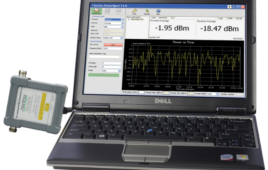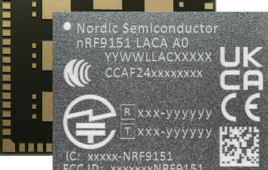 Baltimore (AP) — The American Civil Liberties Union and other groups sued the National Security Agency and the Justice Department on Tuesday, challenging the government’s practice of collecting personal information from vast amounts of data harvested directly from the Internet’s infrastructure.
Baltimore (AP) — The American Civil Liberties Union and other groups sued the National Security Agency and the Justice Department on Tuesday, challenging the government’s practice of collecting personal information from vast amounts of data harvested directly from the Internet’s infrastructure.
The suit filed in federal court in Maryland accuses the NSA of scooping up virtually everything sent via the Internet between Americans and people outside the United States, and then scouring it to identify and monitor foreign intelligence targets.
A similar challenge was turned away by the U.S. Supreme Court, which said the plaintiffs couldn’t prove they’d been harmed. This lawsuit says that’s changed since the government confirmed the surveillance after its scope and details were leaked by former government contractor Edward Snowden in 2013.
This “upstream” surveillance of the Internet’s “backbone” of digital networks reaches far beyond any individuals the government is targeting to combat terror attacks, and violates constitutional protections of free speech and privacy, the plaintiffs say.
ACLU staff attorney Patrick Toomey said Tuesday that Snowden’s leaks changed the whole legal paradigm.
“We believe the Snowden disclosures will make an immense difference in how this case will play out,” Toomey said. “Prior to Snowden, the public had never heard of upstream surveillance. But based on those disclosures and what the government has acknowledged itself, we know the government isn’t just surveilling its targets, its surveilling everyone.”
The suit’s other plaintiffs include The Wikimedia Foundation, Human Rights Watch, Amnesty International USA, the Rutherford Institute, PEN American Center, The Nation magazine, the National Association of Criminal Defense Lawyers, Global Fund for Women and Washington Office on Latin America.
Wikipedia was included on an NSA slide Snowden leaked in 2013 that demonstrated the agency’s interest in monitoring communications on certain websites. That frightened Wikipedia contributors, particularly in countries where human rights aren’t respected, whose anonymity is essential to the free flow of information, founder Jimmy Wales said.
The Wikimedia Foundation — which hosts 12 websites including Wikipedia that received more than 248 billion page requests between October 2013 and October 2014 — is directly threatened by the fear that the U.S. government can share the surveillance information it gathers with intelligence agencies in other countries, Wales wrote Tuesday.
“Surveillance erodes the original promise of the Internet: an open space for collaboration and experimentation, and a place free from fear,” he wrote.
Toomey said the government’s surveillance tactics are particularly dangerous because they discourage organizations from engaging in global human rights work, saying the programs have a “chilling effect on the work of organizations that are essential to democracy.”
The suit filed Tuesday echoes the Electronic Frontier Foundation’s lawsuit in California accusing the NSA of tapping into an AT&T network in San Francisco to harvest the communications of private U.S. citizens. A federal judge ruled last month that the plaintiffs would not be able to make their case, since forcing disclosure could compromise national security.
Mark Rumold, an attorney for the Electronic Frontier Foundation, said Snowden’s disclosures could certainly bolster ACLU’s argument, but the state secret privilege remains a challenge.
“The government still uses the threat of damage to national security to get legitimate constitutional claims blocked in court,” Rumold said. “Snowden’s disclosures have absolutely changed the playing field, but the playing field is not level.”
The NSA made no public comment on the suit, but current and former U.S. government officials have said the Internet surveillance is authorized by a secret intelligence court and focused so that it minimizes the collection of communications by American citizens.
And while they acknowledge that some communications of American citizens are collected in pursuit of foreign data, they say those are subject to special handling, including blacking out the names unless they are relevant, and they say a U.S. citizen or resident can’t be targeted without a specific warrant.
—
Associated Press Writer Ken Dilanian in Washington, D.C., contributed to this story.




